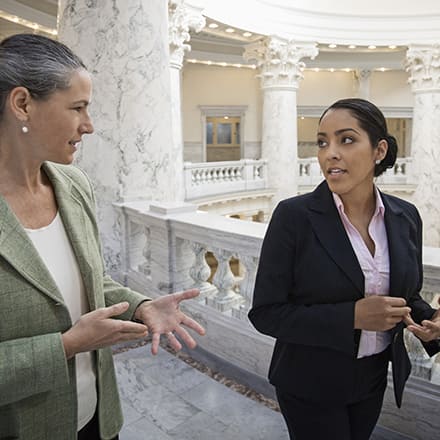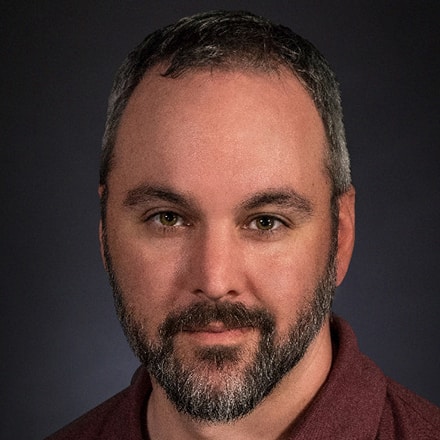Anthropology and Public Health Instructor Dr. Kelley Sams: A Q&A

Dr. Kelley Sams found that teaching anthropology online at Southern New Hampshire University was a great way to continue having a direct impact on students' education while allowing her to continue to pursue her passion for research. Recently we asked her about her thoughts on teaching, the importance of education and more as part of SNHU's Faculty Spotlight series.
Tell us a little bit about your professional background?
I hold a Ph.D. in applied cultural anthropology from the University of South Florida, a master's in public health degree from Tulane University, and a bachelor's degree in Fine Arts from the University of Florida. I was a Peace Corps volunteer in Niger and worked on international health and development programs in the Democratic Republic of Congo, Ghana, Nigeria, Rwanda and Zambia. I have taught anthropology and public health in France and the United States.
What led you to academics, and in particular, SNHU?
I love learning, exploring and talking about the world. I’ve found that academics provides a place to do all three of these things. I learned about SNHU from my grandmother (thanks, Grandma!), who saw an ad on TV and encouraged me to reach out to see if they needed instructors. She thought it would be perfect for me since I missed teaching while I was busy doing research. Teaching online provides a great opportunity for me to connect with students while still maintaining an active research agenda.
What drew you to this field of study? What keeps you excited about it?
I became interested in public health and anthropology as a Peace Corps volunteer when I saw the complicated interactions between health education programs and their target communities. I stay excited about these disciplines because they are both focused on the human experience, and humans are fascinating! There is always something new to discover.
What do you find rewarding in your position as an online instructor?
I love teaching, but I haven’t always had the schedule to maintain regular in-person time in the classroom. Asynchronous online courses provide the perfect opportunity for me to teach and engage with students from wherever I am. I also find it rewarding to connect with students from all over the country with diverse interests and backgrounds.
Can you think of a particularly impactful or eye-opening moment as an educator?
For me, the most impactful moments occur when my students realize that the information we are covering is not just about someone else, but it’s about them! Public health and the cultural aspects of health and illness are about the human experience, which means they are about us all!
What advice do you have for students interested in studying online?
Succeeding in online learning has a lot to do with good time management. I encourage students to really think about how to use the 24 hours they each get every day. At the beginning of each term, each week and each day, make a plan. Decide what you want to accomplish in terms of work, relaxation, family time, etc. Think about your priorities and set clear boundaries for yourself. No one else is going to do this for you!
What, if anything, did you not expect from your career path?
When I graduated from college with my BFA, I did not expect to be back. Even after my MPH, I thought I was done, but academia kept calling me back. After trying out other ways of engaging with the world, I’ve found that academia is where I’m the happiest.
How have you found ways to effectively connect with students online?
Whenever I have the opportunity, I really like to connect with students via video or phone. Email is an excellent way to stay in touch, but there is something special about hearing your students' voices!
You were recognized as a Fulbright Scholar in 2009 - what does that accomplishment mean to you?
This was the second time that I applied for a Fulbright. The first time was back in 2001, and I was rejected! I was very happy to be selected as a Fulbright-Hays scholar in 2009, and especially because it meant that I didn’t give up after the first rejection. Persistence is everything!
What did you do during your time as a Fulbright Scholar? How has that time added to your professional and personal experience?
For my Fulbright, I returned to Niger and did fieldwork for my Ph.D. thesis in the same village where I had been a Peace Corps volunteer 10 years earlier. This time I was with my son, who turned 4 years old while we were there. In addition to a pretty good dissertation project about disease elimination and collisions of cultural models of illness, my son and I had some great experiences together that we still talk about today.
What do you enjoy doing when you’re not working?
I enjoy spending time with my son, hiking, traveling and reading.
What is one (or two) books every college student should read?
Every college student should find a piece of fiction that really speaks to them. I don’t have any particular titles to recommend, because I don’t think it’s one size fits all. For me, it was reading authors like JD Salinger, Kurt Vonnegut or Barbara Kingsolver when I was in college. Their fiction made me feel like I was in someone else’s head, an experience that definitely taught me about empathy and cultural relativism.
Why is education important to society as well as to you personally?
Education allows us to see beyond our own perspectives and realize that there are different ways to live life. If our society overall improved its critical thinking skills and understanding of diversity, I believe that we could create a world that would be better for everyone, including ourselves.
Joe Cote is a staff writer at Southern New Hampshire University. Follow him on Twitter @JoeCo2323.
Explore more content like this article

Academic Spotlight: Dr. Laman Tasch, Associate Dean of Academic Strategy, Social Sciences

Why Earning His BA in Political Science Mattered to Anthony Fernandez

What Can You Do With a Master’s in Criminal Justice?
About Southern New Hampshire University

SNHU is a nonprofit, accredited university with a mission to make high-quality education more accessible and affordable for everyone.
Founded in 1932, and online since 1995, we’ve helped countless students reach their goals with flexible, career-focused programs. Our 300-acre campus in Manchester, NH is home to over 3,000 students, and we serve over 135,000 students online. Visit our about SNHU page to learn more about our mission, accreditations, leadership team, national recognitions and awards.


